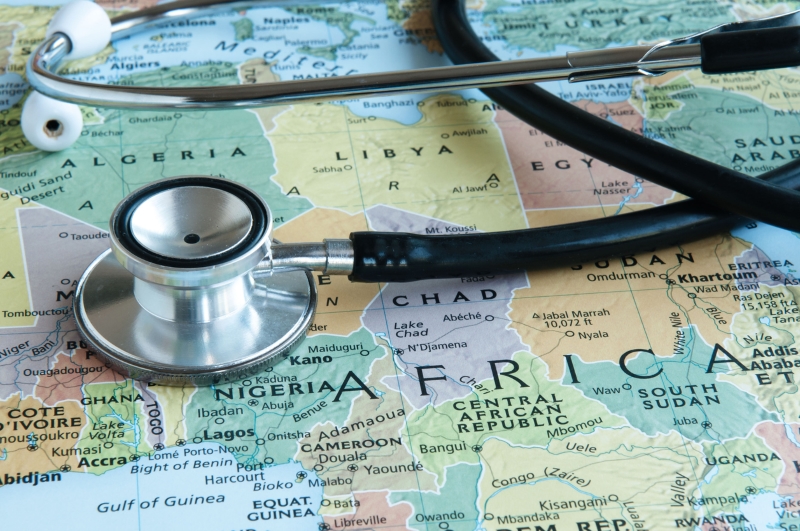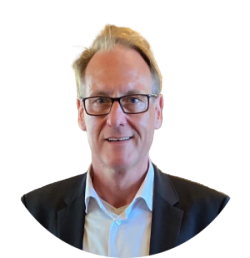Explore your business potential – discover business opportunities within healthcare solutions, August 23rd – 25th, 2023.
AFRICA INNOVATION NETWORK® invites Nordic companies to join our healthcare and medtech business delegation to South Africa in August 2023. The purpose of the business delegation is to identify and meet relevant local healthcare business partners as well as high-level officials.
Programme highlights
- Informal breakfast meeting with officials in the healthcare sector and the organisers at the hotel
- Match-making events with pre-identified South African customers, distributors, procurement officials and other local partners
- Separate B2B-meetings with South African companies for individual members of the delegation
- Networking dinner at the hotel with the Nordic and South African invited local business partners
- Roundtable seminar with experts on reducing the cost of health care in South Africa through ICT

PRICE
The fee for joining the business delegation is EURO 1,700 (ex. VAT) a person. (Based on participation of min. 15 persons).
Not included in the fee is airfare, accommodation, visa and transportation. However AFRICA INNOVATION NETWORK is ready to assist you with cost-efficient airfare and accommodation offer.
The healthcare and medtech market in South Africa
Healthcare and life science in South Africa
South Africa’s healthcare industry is a very dynamic sector. Currently, the public sector provides health care for 80% of the population and accounts for approximately 48% of total health care spending. There is a two-tier healthcare system in South Africa with a large subsidized public sector and a small high-quality private sector. With significant funding and the best specialists going to the private sector, a major gap exists between public and private healthcare facilities in much of the country. The Government’s National Health Insurance (NHI) aims to ensure that all citizens and residents of South Africa, irrespective of socioeconomic status, have access to good-quality health services provided by both the public and private sectors, thereby reducing financial barriers to health care.
M-health solutions
The use of mobile and other digital technologies represents a huge opportunity for strengthening access to health care and the delivery of health care across South Africa. Mobile phone ownership and usage is widespread among all age groups in the country, and internet penetration is increasing. Reaching out to people through their phones can therefore play an important role in raising awareness and promoting more health-focused behaviour. At the same time, through better use of technology in health facility settings, gaps and bottle-necks in the service delivery can be identified in real time and rapidly addressed. A scale-up of mobile health technologies gives companies the opportunity to demonstrate private sector leadership and contribute to tangible, positive change in the way health care is accessed and delivered in South Africa. Scaling up of m-health is in compliance with the objectives of the National Development Plan as well as the Sustainable Development Goals in South Africa. Companies that work in the field of technology also have an excellent opportunity to create shared value by contributing to the local research and innovation capacity and develop, cost effective solutions, whiclead to better a health infrastructure.
Life Science
The life science industry can be categorised in two interlinked subsectors; Biotechnology and Pharmaceuticals. South Africa has the largest life science market on the African continent, at approx. USD 3.2 billion. Leading to the continent’s largest healthcare market valued at approx. USD 28.1 billion. Further to this, the South African prescription drug, generic drug and OTC drug markets are all projected to show considerable growth up to 2023.
(Source: World Bank, WHO).
Target group and incentives
The successful implementation of the NDOH flagship mHealth initiative, MomConnect, saw a tremendous response of pregnant mothers being registered via a mobile platform and receiving an SMS that provides appropriate information and advice throughout their stages of pregnancy. It also provided the pregnant mothers an opportunity to being active participants in monitoring the quality of health service they received at healthcare facilities. However, this process could not have been possible without acknowledging the fact that the penetration of mobile technology and access to mobile phones, in South Africa, continues to grow apace with the investment to infrastructure and connectivity being leveraged mainly through private sector investment
The eHealth strategy defines mHealth as a subsidiary of eHealth, which includes applications to provide health education and awareness; facilitate remote data collection and remote monitoring of health programme implementation; communication and training for healthcare workers; disease and epidemic outbreak tracking; and diagnostic and treatment support. According to the International Telecommunication Unit (ITU), South Africa has over 76 million mobile phone subscribers, an average of 146 mobile cellphone subscriptions per 100 persons, and 75% of mobile phone owners – being in low-income groups – are 15 years or older. Through the use of mobile phone technology, mHealth is considered a catalyst in the strengthening of health systems and has the potential to transform the health service delivery within South Africa, whilst creating a socio-economic impact by improving the effectiveness and efficiency of care.
In compliance with the national and local healthcare strategy, this business delegation targets companies with solutions in the following areas: m-health, m-tech, medtech, tele-health, edtech, medical care and medical equipment areas:
- Emergency response systems (e.g. road traffic accidents, emergency obstetric care).
- Disease surveillance and control (e.g. Malaria, HIV/AIDS, TB, Avian Flu, chronic diseases).
- Human resources coordination, management, and supervision.
- Synchronous and asynchronous mobile telemedicine diagnostic and decision support for clinicians at point-ofcare. ‘
- Remote patient monitoring and clinical care.
- Health extension services, health promotion, and community mobilization.
- Health services monitoring and reporting.
- Health-related m-learning for the general public.
- Training and continuing professional development for health care workers.
Day 1:
Wednesday, August 23rd
Dialogue with government and site visits
- 8.30 – 9.30: Joint breakfast with Health officials and organisers
- 10.00 – 12.00: About the South African healthcare sector /Local partner + Q&A
- 12.00 – 13.00: Networking lunch
- 13.00 – 14.30: Transport to site visits
- 14.30 – 16.00:
- Track 1: Visit to hospital / clinic
- Track 2: Visit to m-health company
- Track 3: Visit to medical producer / research institution
- 16.00 – 17.00: Group photo at cultural site .
- 17.00 – 18.00: Transport to hotel
- 18.00 – 20.00: Rest time at hotel
- 20.00 – 22.30: VIP Dinner
Day 2:
Thursday, August 24th
B2B-matchmaking
- 8.30 – 9.30: Joint breakfast with Health officials and organisers
- 9.30 – 11.30: B2B-matchmaking session 1
- 12.00 – 13.00: Networking lunch
- 13.00 – 16.00: B2B-matchmaking session 2
- 16.00 – 17.00: Resttime at hotel
- 17.30 – 22.30: Cultural evening (tba)
Day 3:
Friday, August 25th
VIP guest and individual company meetings
- 8.30 – 9.30: Joint breakfast
- 9.30 – 11.00: VIP guest speaker (tba)
- 11.00 – 15.00: Individual programme
- Track 1: Individual company meetings (upon request facilitated by AFRICA INNOVATION NETWORK®)
- Track 2: Cultural sightseeing (tba)
- 17.00: Check out / departure
Contact

Contact,
CEO, Flemming Sorensen if you like to join the delegation
fls@nordic-african.com
